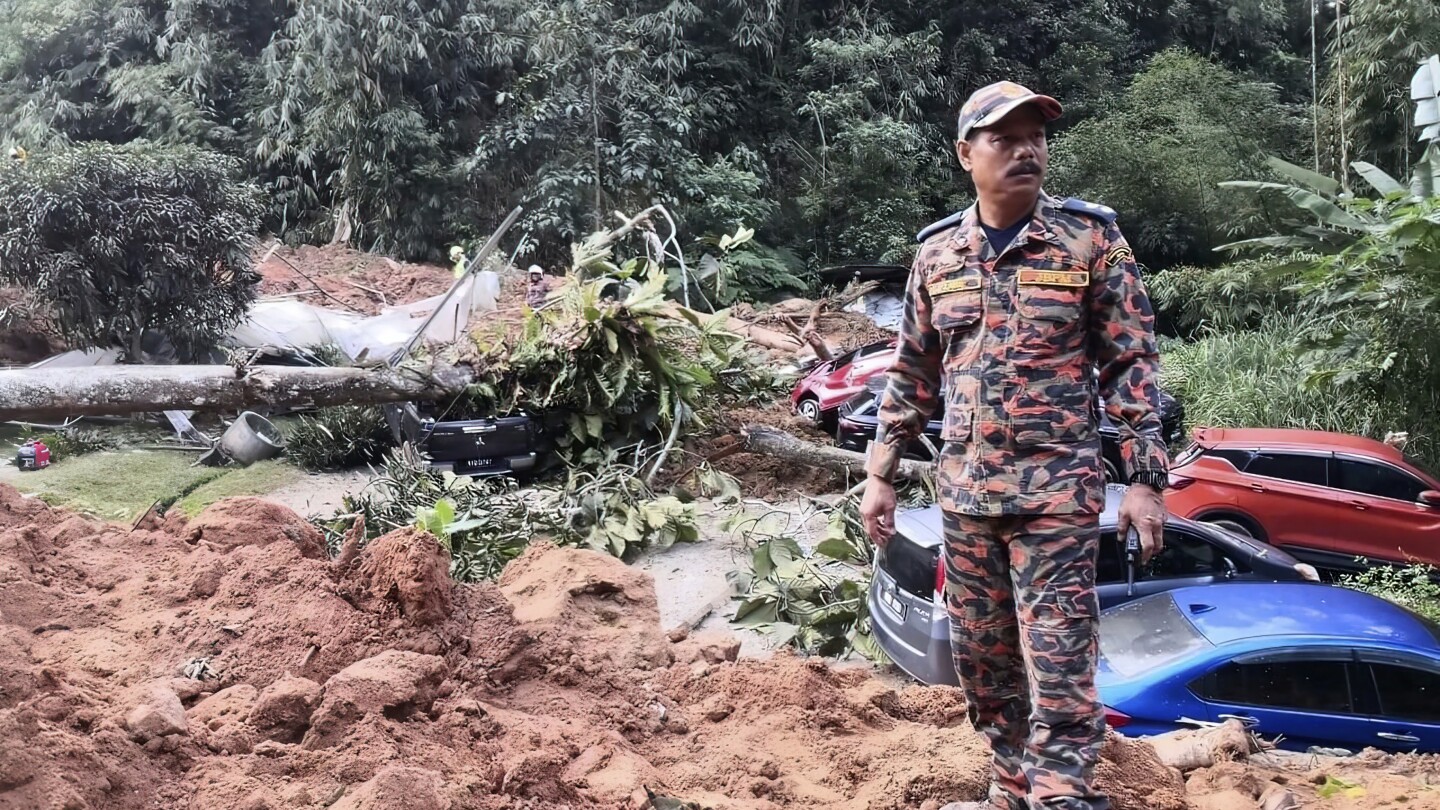KUALA LUMPUR, Malaysia (AP) — A landslide that killed 31 people at an unlicensed campground last year was caused by persistent heavy rainfall, not human activity, a Malaysian government investigation concluded.
Ninety-two people were sleeping at a campsite on an organic farm when soil and debris crashed down from a road about 30 meters (100 feet) above and covered about 1 hectare (3 acres) of the site in Batang Kali in central Selangor state.
Most of the campers were families enjoying a year-end vacation, and 11 of the 31 dead were children. Rescuers found the bodies of a mother and her toddler daughter locked in an embrace, and a man buried under the landslide was uncovered still clutching his dog.
Rain had fallen for five straight days before the Dec. 16 landslide, amounting to 118.6 millimeters (4.67 inches), Deputy Prime Minister Ahmad Zahid Hamidi said in a statement late Monday. The cumulative rainfall for the preceding 30 days was 444.8 millimeters (17.5 inches), he said.
“This heavy rain caused slope failures, which buried the camp sites… under soil, causing damage to property and loss of life,” he said. “The investigation found no strong evidence of anthropogenic activity as a contributing factor to this landslide.”
Anthropogenic refers to environmental change due to human activity.
Zahid said the forensic report was declassified earlier this month. He didn’t say why but local media said families of the victims had requested the government to make the report public.

